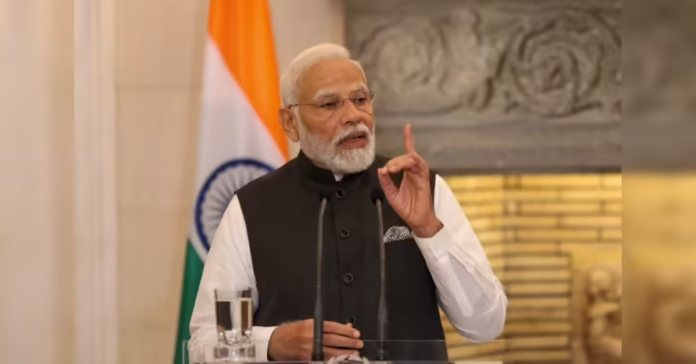Prime Minister Narendra Modi emphasized that the Northeast should no longer be seen as a remote frontier but as India’s strategic gateway to Southeast Asia. Under the “Act East” policy, the government is accelerating initiatives to transform the region into a trade and connectivity hub. The focus is on strengthening cross-border linkages, upgrading rail and road networks, and boosting infrastructure that can enhance India’s global engagements. Modi highlighted how the diversity and dynamism of the Northeast could become an engine for economic growth while improving integration with neighboring countries.
Supreme Court Recognizes CAPF Officers as Organized Services
In another significant development, the Supreme Court ruled that Group A officers of the Central Armed Police Forces (CAPF) must be recognized as part of “organized services.” This verdict is seen as a long-awaited morale booster for the forces, ensuring better career progression, structured promotion avenues, and higher operational efficiency. Experts note that the decision not only elevates the professional standing of the CAPF but also signals the judiciary’s acknowledgment of their growing role in maintaining internal and border security. For thousands of officers, this recognition provides long-term career stability and the respect they have been demanding for years.

India Pushes for Pakistan’s Return to FATF Grey List
On the diplomatic front, India renewed its call for the Financial Action Task Force (FATF) to reconsider Pakistan’s track record in combating terror financing. Officials are advocating for Pakistan’s return to the grey list, stressing that global leniency could embolden cross-border extremist groups and undermine international security mechanisms. Analysts believe this move reflects India’s consistent strategy to hold Pakistan accountable on global platforms while ensuring that global watchdogs maintain pressure against financial loopholes exploited by terrorist outfits. The demand highlights New Delhi’s determination to align counterterrorism efforts with international policy frameworks.
Arunachal Villagers Voice Concerns Over Dam Project
Meanwhile, grassroots voices from the Northeast also made headlines. Villagers in Arunachal Pradesh raised concerns over the heavy deployment of armed forces at a proposed dam site, questioning whether such measures undermine the democratic space for dialogue on environmental and social impacts. Locals argued that the community should have a greater role in decision-making processes, especially since the dam project carries long-term consequences for land, livelihood, and ecological balance. This reflects the ongoing tension between development goals and community rights, a recurring theme in the region’s socio-political landscape.
Punjab’s Growing Drug Crisis Alarms Policymakers
Punjab’s escalating drug crisis was another key issue that surfaced in reports. The state has been witnessing a sharp increase in overdose cases and substance abuse among its youth. Civil society groups and law enforcement agencies are calling for urgent interventions, ranging from awareness campaigns and rehabilitation programs to stricter enforcement against drug cartels. Policymakers are under pressure to address the deepening crisis, which not only threatens public health but also impacts social stability and economic productivity in one of India’s most agriculturally rich states. Experts warn that if unchecked, Punjab could mirror some of the challenges faced in parts of the Northeast, where drug trafficking routes have long posed a threat to social harmony.
Research Scholars Protest Delayed Stipends
Adding to these pressing challenges, research scholars across the country voiced frustration over significant delays in the disbursement of government stipends. Many scholars argue that the delays are affecting their academic pursuits and daily sustenance, forcing them into financial uncertainty. The demand for a streamlined disbursement system and interim relief measures has grown stronger, with students warning that prolonged delays could erode India’s research ecosystem and drive young talent away from higher education. Similar concerns have been echoed in the Northeast, where students and scholars depend heavily on government fellowships to pursue higher studies in resource-constrained settings.
Southeast Asia Faces Medical Oxygen Shortages
Beyond India’s borders, concerns were raised over the widening gap in medical oxygen availability across Southeast Asia. Analysts pointed out that the issue reflects a larger regional challenge in public health preparedness and healthcare infrastructure. The call for better cross-border cooperation and investment in medical supply chains is growing, as countries brace themselves for potential health emergencies that could strain already fragile systems. Observers also note that Northeast India, with its proximity to Southeast Asia, must be part of these preparedness discussions to ensure that the region is not left vulnerable during future crises.
ALSO READ: Holi 2025: Auspicious Date, Muhurat, Rituals & Significance of the Festival












